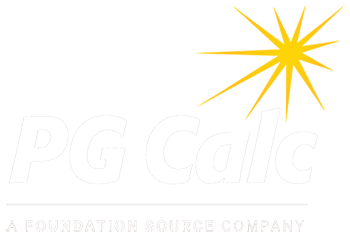Navigating the Quid Pro Quo Trap – How It Affects QCDs and DAFs
-Qualified Charitable Distributions (QCDs) and Donor-Advised Funds (DAFs) are lucrative sources of philanthropic dollars available for current use. Donors often use QCDs and/or DAFs to make tax advantaged annual gifts. In addition, donors make tax smart major or even principal gifts from one of these sources. However, both QCDs and DAF grantmaking rely on donor and charity self-reporting to comply with the rules regarding permissible gifts from these sources.
It is hornbook law that a QCD to charity will only qualify as a QCD if the “entire distribution would be allowable under Section 170” as a charitable deduction. Likewise, it is universally understood that using a donor-advised fund (DAF) to make a grant for a quid pro quo donation is also prohibited. Therefore, both DAF donor advisors and QCD donors may not enjoy quid pro quo benefits that exceed the insubstantial value rules applicable to these gifts. Following tax law, even when the IRS isn’t looking, establishes the credibility and philanthropic motive underlying the preferential tax treatment of charitable gifts.
Money Talks, But Can It Follow Instructions? The Proposed Donor Advised Fund Regulations
-Just before the holiday season began in the fall of 2023, the Treasury Department published and sought comments on proposed regulations governing donor advised funds (DAFs). Although long anticipated, the proposed regulations caught many of us off guard. Was this the opening salvo, a continuing assault on DAFs, or the final barrage? Is there more here than meets the eye or less? And what’s coming next?
For decades, donor advised funds existed in legal limbo. As funds of a public charity (the community foundation), they have operated under a web of legal concepts and regulations governing community trusts and nonprofit fund accounting. Finally, the Pension Protection Act of 2006 provided legislative direction and then, 17 years later in the fall of 2023, these proposed regulations were issued.
For the most part, the proposed regulations are focused on providing definitions, clarifying the roles and responsibilities of the parties, and clarifying the distinction between donor advised funds and private foundations. The regulatory approach, the big stick if you will, is to define certain donor advised fund distributions as taxable and apply an excise tax on them.
“Please, Sir, I Want Some More” - The Plight of Orphan DAFs
-What happens when there is money left in a donor advised fund after the last donor-advisor has died? Where does that money go? Who decides how the money is used? Like a street urchin in a Charles Dickens novel, an “orphan donor advised fund” can sometimes achieve great expectations or, sadly, pass invisibly without much impact. And, like Dickens’ obsession with orphans, there are those who are concerned about the growing orphan population and some who would exploit these orphans for their own purposes.
ACE Act Proposes Important Changes in DAF Rules
-No doubt, you have heard about looming changes threatening the long-established rules governing donor advised funds (DAFs). Some commentators are sounding the alarm. The Philanthropy Roundtable says the changes “would stifle charitable giving, harming those in need.” Others welcome the effort to free up charitable dollars they believe have been squirrelled away for far too long. We will leave the Wagnerian sturm und drang to others, but it is important to understand these proposals and what may be coming our way.
On June 9, 2021, Senator Angus King (I-ME) introduced Senate Bill 1981, the Accelerating Charitable Efforts Act (the “ACE Act”) with Senator Charles Grassley (R-IA) as a co-sponsor. The bill was referred to the Committee on Finance. As of this writing, there are no additional co-sponsors and no companion legislation in the House. Although legislative prognosticators give the ACE Act only a 1% chance of becoming law in its current form, parts of it could find their way into other legislation. In addition, the ACE Act is heating up long-simmering debates about donor advised funds and private foundations.
Although the ACE Act includes some significant changes to the private foundation rules, donor advised funds are the primary focus – some will say “target” – of the bill. Following is a summary of major provisions of the ACE Act that apply to donor advised funds.

